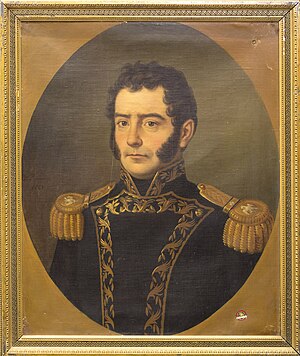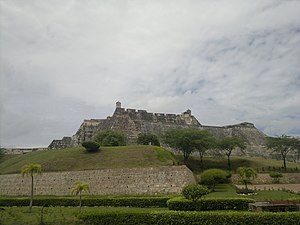Discover Your Roots
SIGN UPDiscover Your Roots
SIGN UPMelchor is a male name of Spanish origin, meaning "King of Light." It is associated with qualities of leadership, brightness, and strength. The name is commonly found in Spanish-speaking regions and holds cultural significance, often symbolizing power and illumination. Additionally, Melchor is linked to various geographical locations and institutions, reflecting its historical and widespread usage. Its usage may also be connected to the fictional character Melkor in Tolkien's legendarium. Overall, Melchor is a name rich in meaning and heritage, embodying royal traits and a luminous presence.

Melchor Múzquiz, born on April 6, 1788, was a prominent Mexican soldier and statesman who served as the 5th President of Mexico. He actively participated in the Mexican War of Independence, joining the insurgents in 1810 and fighting against the Spanish. Múzquiz played a significant role in the Plan of Iguala, which led to Mexico's independence in 1821. Throughout his career, he held various political positions, including governor of the State of Mexico and brigadier general under President Guadalupe Victoria's administration.In 1832, Múzquiz assumed the interim presidency after President Anastasio Bustamante stepped down to lead his armies against an insurgency known as the Plan of Veracruz. However, the revolutionaries' movement succeeded, and Múzquiz was forced to resign in favor of Manuel Gomez Pedraza. Despite his efforts to maintain the government's stability, Múzquiz faced challenges from rebel forces and struggled to secure funding for the country's armies during a period of civil unrest.Although his presidency was marked by internal turmoil and political unrest, Melchor Múzquiz's contributions to Mexico's independence and his dedication to public service have solidified his place in Mexican history as a respected leader and patriot.

Melchor de Aguilera, a Spanish governor of Cartagena, governed the region from 1638 to 1641. His marriage to Maria de Roche, daughter of an Irish exile, took place in Madrid. Prior to his role in Cartagena, Aguilera served in diplomatic and administrative positions in Italy and France. Notably, his daughter Teresa wed López de Mendizábal, who later became the governor of New Mexico. Aguilera's report in 1639 shed light on the corruption surrounding slave trading in Cartagena, where officials and guards demanded hefty bribes, enabling the illegal import of slaves. Aguilera initiated the construction of the Castillo San Felipe de Barajas, a significant feat of Spanish military engineering, during his tenure. Additionally, he took action against pirates infesting Providencia Island, dispatching armed Spaniards and militiamen to confront them. Aguilera's leadership and initiatives left a lasting impact on the region during his governorship.Keywords: Melchor de Aguilera, Spanish governor, Cartagena, Maria de Roche, diplomatic, administrator, corruption, slave trading, Castillo San Felipe de Barajas, piracy, Providencia Island



All images displayed on this page are sourced from Wikipedia or Wikimedia Commons.We use these images under their respective Creative Commons or public domain licenses. Wherever applicable, author attributions and license information are provided. If you believe an image is used incorrectly or outside its license terms, please contact us so that we can review and correct the issue.